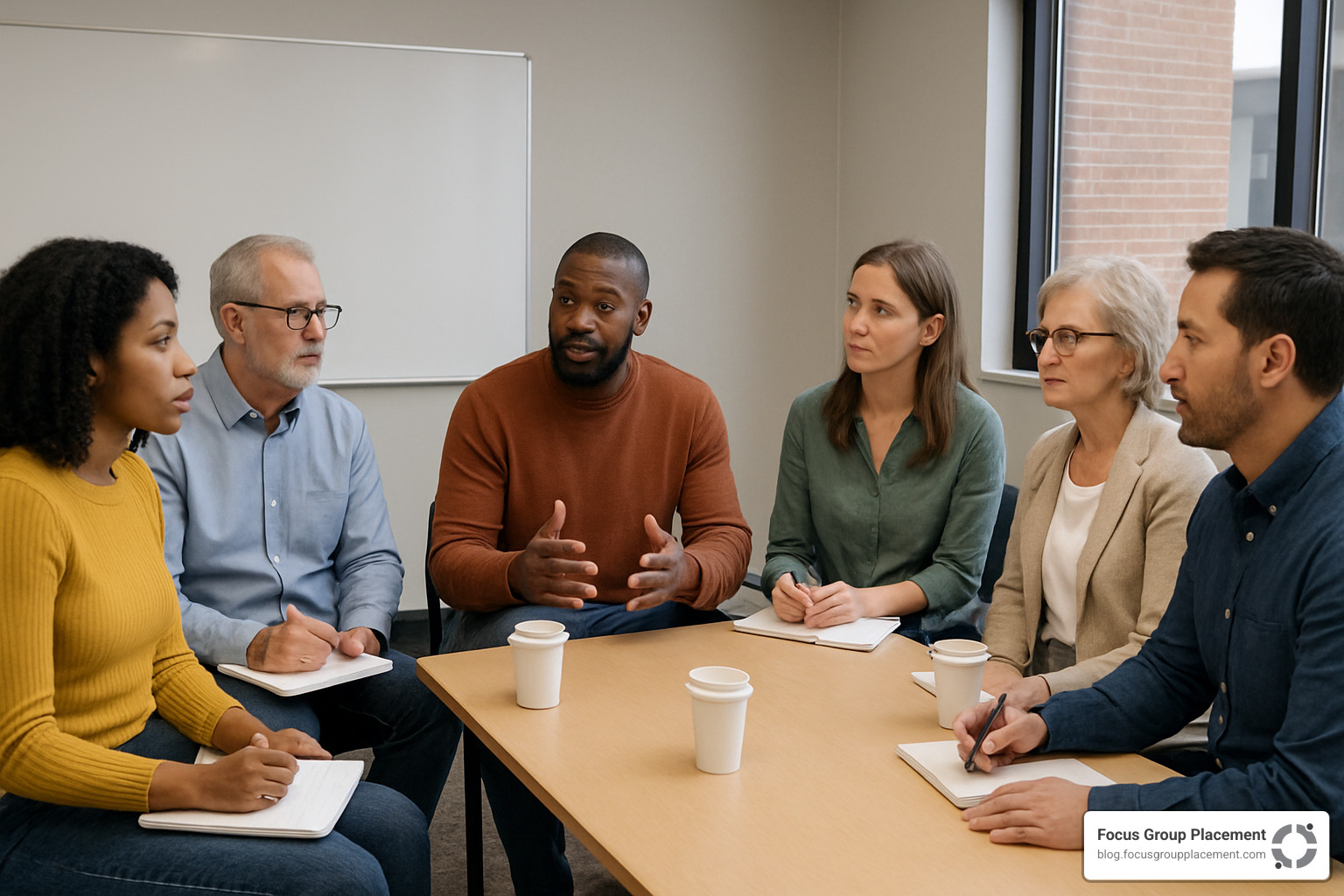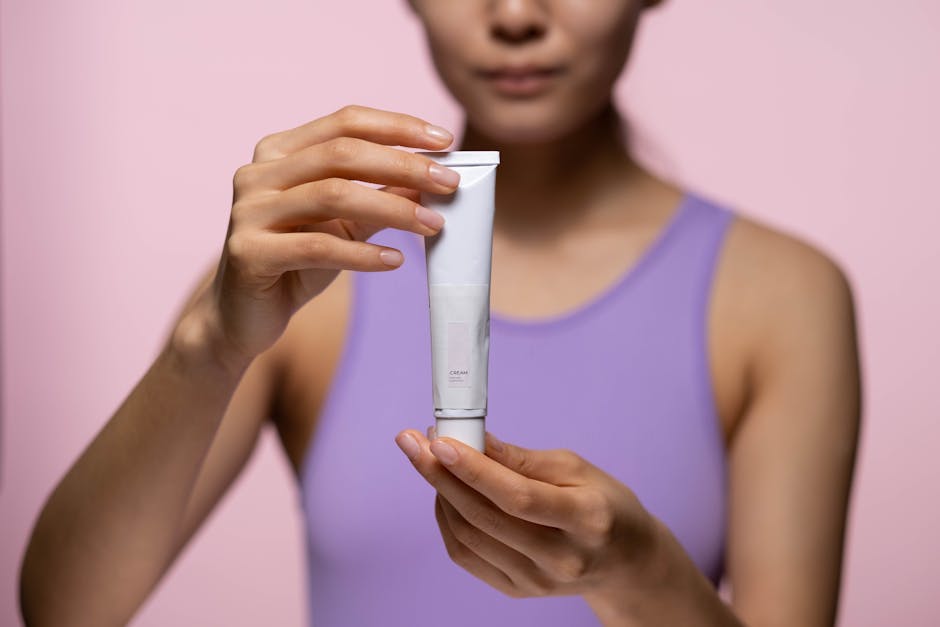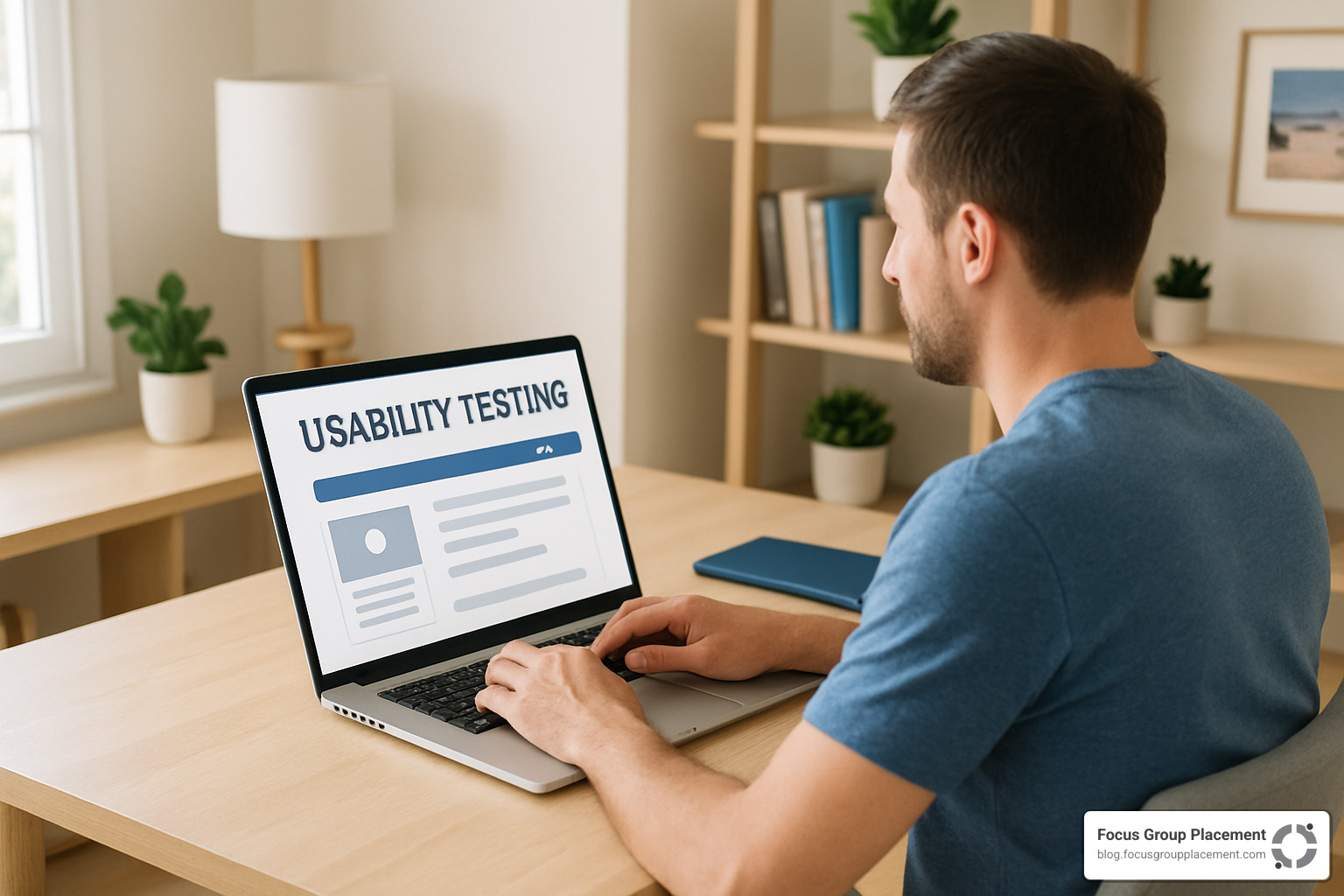Your Gateway to Earning Extra Cash Through Houston Focus Groups
Focus groups houston offer busy professionals a flexible way to earn $75-$400 per session by simply sharing their opinions on products, services, and community topics. Here’s what you need to know to get started:
Quick Houston Focus Group Facts:
- Pay Range: $75-$400 per session (most pay $100-$200)
- Time Commitment: 1-2 hours per session
- Format Options: In-person (Galleria/Medical Center area) or online via Zoom
- Popular Topics: Health & wellness, automotive, skincare, community issues, tech products
- Payment: Immediate via PayPal, check, or gift card
Houston’s thriving research community needs diverse voices to help shape everything from new grocery products to community initiatives. Companies pay well because your honest feedback directly influences their business decisions.
The process is straightforward: complete a screening survey, attend your session, share your thoughts in a relaxed group setting, and walk away with cash in hand. Sessions often include snacks, validated parking, and the chance to see products before they hit the market.
Whether you’re looking to supplement your income or simply enjoy discussing new ideas with fellow Houstonians, focus groups offer a legitimate way to get paid for something you already do – share your opinions.
I’m Scott Brown, founder of Focus Group Placement, and I’ve been connecting market research companies with participants since 2014, helping thousands of people find focus groups houston opportunities that fit their schedules and interests. This guide will show you exactly how to tap into Houston’s lucrative focus group market and start earning today.

Focus groups houston terms to learn:
Why Read This Guide?
This comprehensive guide will transform you from a curious observer into a confident focus group participant. We’ll walk you through every step of the process, from finding opportunities to maximizing your earnings. You’ll find insider tips that help successful participants earn hundreds of dollars monthly while contributing valuable insights to Houston’s business community.
By the end of this guide, you’ll have a clear roadmap to start earning extra income on your own schedule. We’ve helped thousands of participants steer Houston’s focus group landscape, and now it’s your turn to join this rewarding community.
Focus Groups Houston 101: What They Are & Why Companies Rely on Them
Imagine sitting with eight other Houstonians, chatting about a new energy drink while a moderator guides the conversation. Ninety minutes later you walk out with $150. That’s a focus group in a nutshell—an informal, moderated discussion where everyday consumers give candid feedback that companies can’t capture with surveys alone. (For the academic back-story, see the Focus group – Wikipedia.)
Houston’s research scene is broad:
- Traditional product or concept discussions
- Mock juries that help attorneys gauge case reactions
- Usability labs where you test websites or devices
- Product testing that lets you taste, touch, or try items before launch
Because our city is so diverse, researchers crave opinions from every age, income, and cultural background. Spanish-English bilingual sessions are especially prized; the smaller pool of eligible participants pushes pay upward.
Popular local topics include health & wellness, skincare, automotive, community issues, and tech prototypes. Energy companies ask about service-station experiences, the Texas Medical Center fuels countless medical studies, and the booming tech corridor funds prototype evaluations.
In-person sessions (often near the Galleria or Medical Center) pay $100-$400 for 1-3 hours. Online groups pay $75-$300 for the convenience of joining from home. Product tests usually require you on site so you can physically interact with items, while concept conversations translate well to Zoom.
However you participate, remember this: companies put real money on the table because your honest thoughts shape million-dollar decisions.
Show Me the Money: Typical Pay & Payment Logistics
Houston focus groups pay well for short commitments. Most sessions fall between $100 and $200, but the full range is $75 to $400.
Recent real payouts: one-hour software usability test – $100 check; premium skincare chat – $200 PayPal; county-wide community study – $300; two-day beverage board – $150.

How you get paid:
- Instant PayPal or digital gift card (common for online studies)
- Check or prepaid Visa handed to you as you leave in-person sessions
Payments are faster than ever—often within minutes online or before you exit the facility.
Taxes: exceed $600 with one company in a calendar year and you’ll get a 1099. Track earnings and mileage; travel to sessions may qualify as a deductible expense.
What drives higher incentives?
- Longer sessions or multi-day diaries
- Hard-to-find audiences (e.g., left-handed engineers, bilingual parents)
- Professional or medical expertise
- Last-minute replacements
Be flexible and keep profiles current to land the premium spots.
Finding & Qualifying for Focus Groups in Houston
Every opportunity starts with a short screening survey. It isn’t a test—researchers simply match the right mix of ages, genders, and experiences. Houston studies fill fast, so reply as soon as the email or text alert lands.
Tips to get selected:
- Be 100 % honest. Facilities compare your answers with past records and will blacklist anyone who fibs.
- Complete your profile on every panel you join; detailed hobbies, job titles, and household data trigger more invites.
- Enable phone/email alerts and answer quickly—$200 studies can fill in hours.
- Join waitlists; no-shows are common and you may get a same-day call with a bonus.
Where to look:
- FocusGroupPlacement.com (we aggregate most Houston studies)
- Dedicated facilities near the Galleria & Medical Center
- University business or psychology departments
- Legitimate local Facebook or Nextdoor groups
For a step-by-step walkthrough see our guide on how to participate in paid focus groups.
Being bilingual is a super-power—Spanish-English speakers qualify for many higher-pay studies that monolingual Houstonians can’t access.
Inside the Room: What to Expect on Study Day
Arrive 10–15 minutes early, check in, sign a standard confidentiality form, and grab a coffee. Most Houston facilities validate parking and provide snacks.

A typical 90-minute flow:
- Icebreaker introductions
- Moderator-led questions
- Hands-on activities (taste test, prototype demo, mock jury exercise)
- Quick individual survey
- Payment—cash, check, or digital—before you leave
Observers may sit behind a one-way mirror or watch via livestream; it’s simply to avoid influencing the conversation. Most participants find the atmosphere relaxed and even fun.
Pro Tips to Maximize Earnings & Enjoy the Ride
Think of focus groups as a micro-business:
- Register with several panels and keep info up to date—more nets, more fish.
- Specialize if you can: mock juries, UX testing, or sensory evaluations often repeat and pay top dollar.
- Track mileage and parking; frequent travelers can deduct those costs.
- Set an annual goal (many regulars hit $2–5 k) and only accept studies that move you toward it.
- Refer friends; facilities commonly pay $25–$50 per successful referral.

Professionalism matters: show up on time, stay engaged, and never post NDA-protected info on social media. If you must cancel, give at least 24 hours’ notice to avoid being black-listed.
Online upgrades: evening diary studies or app-install tasks pay $75-$500 and fit around a full-time job. Read more in our guide to online focus groups that pay.
Frequently Asked Questions about Focus Groups Houston
Let’s tackle the most common questions we hear from people interested in focus groups houston. These answers come from years of helping participants steer the research world successfully.
How quickly do participants get paid?
The good news is that payment has gotten much faster over the years. Online focus groups often pay immediately through PayPal – literally within minutes of completing your session. It’s pretty satisfying to hear that payment notification ping right after you finish sharing your thoughts.
In-person sessions typically hand you payment before you leave the building. You’ll walk out with either cash, a check, or confirmation of your digital payment. No waiting around or wondering when you’ll get paid.
Many research facilities have built stellar reputations partly because participants consistently praise their quick payment processing. Their high ratings reflect this reliability.
Traditional checks are still common, especially for larger payments. These usually arrive within 1-2 weeks by mail. While not instant, it’s still pretty reliable. Some facilities offer digital gift cards or Visa prepaid cards that you can use immediately.
The payment method often depends on the study amount. Smaller payments tend to go digital, while larger compensation might come as a check for security reasons.
Do I have to pay taxes on incentives?
Yes, focus group payments count as taxable income – but don’t let that scare you away. The money is still worth earning, and the tax implications are straightforward.
Here’s what matters: if you earn more than $600 from a single research company in one calendar year, they’ll send you a 1099 form for tax reporting. Most casual participants never hit this threshold because they spread their participation across multiple companies.
Keep good records of all your payments. Write down dates, amounts, company names, and study topics. This helps at tax time and shows you’re treating this income responsibly.
Here’s a bonus many people don’t know: travel expenses to focus group locations may be tax-deductible if you participate regularly. Keep track of your mileage and parking costs. These business-related expenses might offset some of your earnings.
Consult a tax professional if you’re earning significant income from research participation. They can provide specific advice for your situation and help you maximize any available deductions.
Can students or seniors participate?
Absolutely! Both students and seniors are valuable voices in Houston’s research community. Your age might actually be your ticket to higher-paying studies.
College students are goldmines for researchers studying technology, lifestyle trends, and educational topics. Companies want to understand how younger consumers think and behave. Recent studies have specifically targeted students for everything from app testing to career-related discussions.
Seniors bring wisdom and experience that researchers highly value. Healthcare studies, financial services research, and consumer product testing often specifically seek older participants. Your life experience and purchasing power make you incredibly valuable to companies developing products and services.
Age-specific studies are common in Houston. Some target narrow ranges like “21-54 for beverage research,” while others welcome “participants 18 and older.” Your specific age might actually be an advantage rather than a limitation.
Generational perspectives are hot topics in research. Companies want to understand how different age groups view technology, social issues, and consumer trends. Whether you’re a Gen Z student or a Baby Boomer retiree, your viewpoint represents millions of people in your demographic.
The key is being honest about your age and background during screening. Researchers need authentic voices from real people, not someone pretending to be younger or older to qualify for studies.
Conclusion
Focus groups houston offer something special – a chance to earn real money while making your voice heard in your community. With sessions paying between $75 and $400, you’re not just sharing opinions; you’re getting fairly compensated for your time and insights.
Think about it: your thoughts on that new restaurant concept could influence where your neighbors dine next year. Your feedback on healthcare services might improve patient experiences across the city. When you participate in focus groups houston, you’re not just earning extra cash – you’re helping shape the products, services, and policies that affect everyone around you.
The earning potential is genuinely impressive for people who take it seriously. Dedicated participants often earn several thousand dollars annually by staying active on multiple platforms, responding quickly to opportunities, and showing up professionally. Whether you need a few hundred dollars for holiday shopping or want to build a steady side income stream, focus groups adapt to your goals and schedule.
Some of our most successful participants started exactly where you are now – curious about the process and wondering if it’s worth their time. They finded that focus groups houston sessions are often enjoyable, sometimes fascinating, and always rewarding. You’ll meet interesting people, learn about products before they launch, and occasionally influence decisions that matter to your community.
Focus Group Placement makes getting started simple. Instead of hunting down individual research companies or wondering which opportunities are legitimate, our platform connects you with vetted studies that match your background and interests. We handle the searching so you can focus on earning.
Ready to turn your opinions into income? Our detailed guide on How to Participate in Paid Focus Groups walks you through everything you need to know, from creating your first profile to maximizing your earnings.
Your thoughts have always mattered – now it’s time to get paid for them. Houston’s research community is waiting to hear what you have to say, and we’re here to connect you with the right opportunities. Start sharing your voice today and find how rewarding focus groups houston can be.

























































